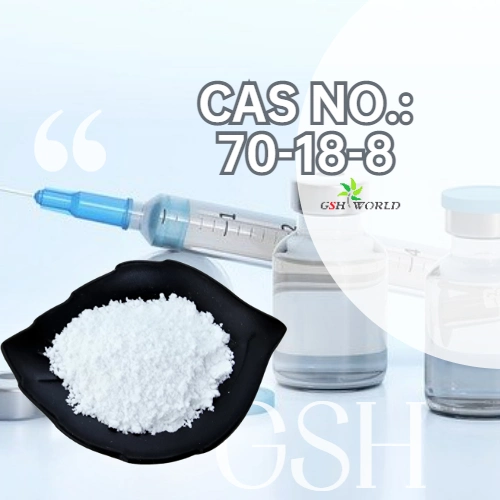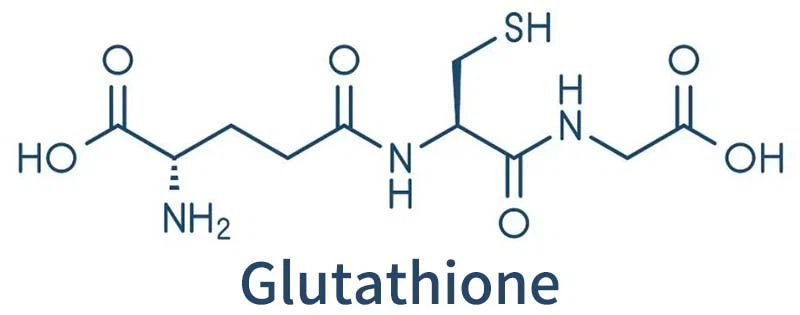What is glutathione?
Glutathione plays an essential role in nature.
It is a small tripeptide molecule, a clever combination of three amino acids – glutamic acid, cysteine and glycine – found in almost all plant and animal cells.
Despite its small size, it can be a lot of energy, especially in the fight against oxidative stress, detoxification and maintenance of cell health, glutathione is like a cellular superhero, always guarding the balance and stability of life.
Glutathione’s natural mission

First, let’s take a look at some of the “superpowers” of glutathione.
Best known as the “antioxidant fighter,” glutathione effectively traps and neutralizes damaging free radicals that roam the body, protecting cells from oxidative damage.
Glutathione is also an excellent “cleaner”, involved in removing toxins and harmful substances from the body and helping the body complete the detoxification process.
Also essential for maintaining the structural integrity of proteins, regulating the immune system, and protecting DNA from damage, glutathione is essential for the proper functioning of life.
Green exploration in agriculture
Since glutathione has so many benefits in living organisms, its application in agricultural production is also gradually showing its potential to promote crop growth, improve crop stress resistance and improve the quality of agricultural products.
Improve crop stress resistance
In the face of extreme climatic conditions (such as drought, salinity, high temperatures, etc.), crops can suffer from severe oxidative stress, resulting in stunted growth and even death.
Exogenous application of glutathione can enhance the activity of the antioxidant system in crops and reduce the oxidative damage caused by stress, thus improving the stress resistance and survival ability of crops.
This means that crops can grow better under adverse conditions, ensuring food security and agricultural production stability.
Promote growth and development
Glutathione is involved in regulating many physiological and biochemical processes in plants, including photosynthesis, nutrient absorption and transport.
Appropriate glutathione supplementation can promote the development of crop roots, increase root surface area, improve water and nutrient absorption efficiency, and thus accelerate crop growth and increase yield.
At the same time, it can optimize the nutrient distribution of crops, promote fruit expansion and quality improvement, and provide consumers with better quality and healthier agricultural products.
Reduce use of chemical inputs
In modern agriculture, excessive reliance on chemical fertilizers and pesticides not only increases production costs, but also may cause environmental pollution and food safety problems.
The application of glutathione as a means of biological regulation helps to reduce the dependence on chemical inputs.
By enhancing the defense mechanism and metabolic capacity of crops themselves, the use of chemical fertilizers and pesticides can be replaced or reduced to a certain extent, and agriculture can be promoted to a more environmentally friendly and sustainable direction.
To Cui herbicide safety retarding agent
1/ Prevention of herbicide damage:
When adding this product to the use of herbicides, it can prevent or reduce the harm of herbicides to crops.
2/ Eliminate or mitigate herbicide damage:
For herbicide damage caused by improper use or residue, spraying this product can eliminate or relieve symptoms such as yellow leaves and short length caused by herbicide damage.
3/ Decomposition soil residue:
Continuous use of this product can eliminate or alleviate herbicide residues in the soil, shorten the safe interval between herbicides and subsequent sensitive crops, and increase the flexibility of crop rotation.
4/ This product can also eliminate or alleviate the harm caused by pesticides, fungicides, fertilizers, etc., and has a good mitigation effect on frost, hail, water damage, wind damage, etc.
Glutathione is not only the patron saint of living organisms, but also a key to the green development of modern agriculture.
With the advancement of science and technology and the deepening of research, glutathione will be more widely used in agriculture in the future, helping to build a greener and healthier agricultural ecosystem.




